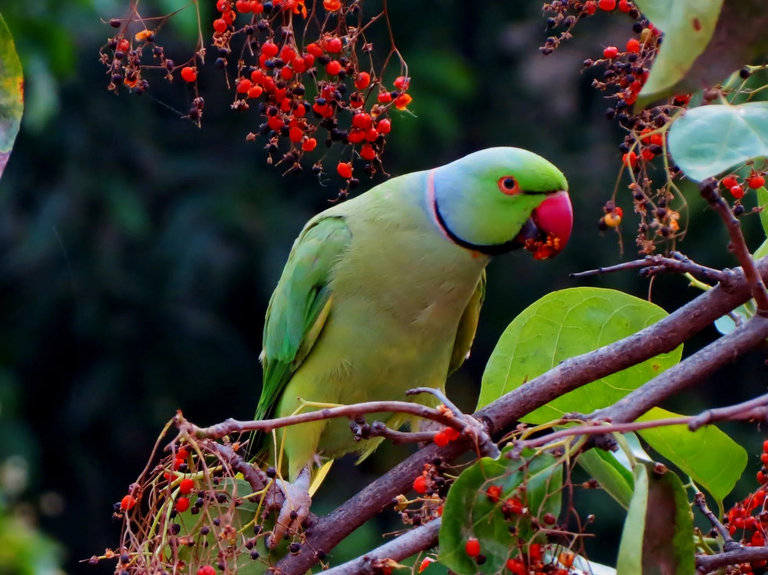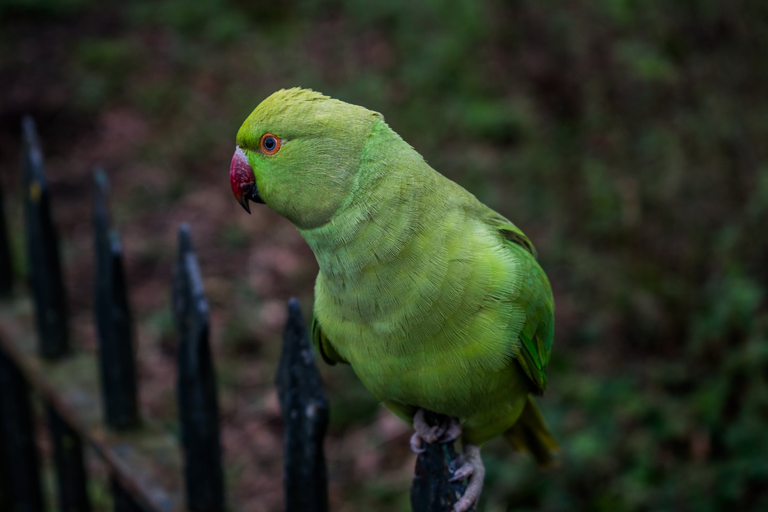Thriving nature of parrots and their calcium supplements
Do you ever wonder how parrots stay healthy when they are living in the wild? Well, guess what? I recently discovered something fascinating - some parrots can actually produce their own calcium supplements! It is truly incredible how nature never ceases to surprise us, don't you think?

Before we jump into discussing this topic, let's pause for a moment and marvel at the wonderful and varied world of parrots. From the magnificent macaws to the adorable lovebirds, these delightful creatures consistently impress us with their stunning looks and remarkable intelligence. But here's a fascinating fact: parrots possess not only visual beauty but also incredible survival skills. One of these remarkable skills is their ability to self-supplement.
Parrots absolutely need calcium in their diet because it is vital for maintaining their bones and keeping their beaks healthy. Interestingly, in their natural habitat, parrots have developed their own method of getting just the right amount of this important nutrient. Unlike humans who typically depend on supplements or specially fortified foods, parrots have a more hands-on approach. Literally!
Certain types of parrots possess an incredible talent for producing their own calcium supplements through the consumption of particular rocks and shells. These intelligent birds actively seek out mineral-rich deposits like limestone or coral rocks that are abundant in calcium. Using their formidable beaks, they skillfully chip off small fragments and proceed to pulverise them into a finely powdered form.
Once the calcium-rich rocks have been ground into a fine dust, parrots will often ingest the powder directly or apply it to their food. This self-supplementation technique allows them to regulate their calcium intake and ensure their bodies have enough to support their bone structure and overall health. Talk about being resourceful!
You may wonder how these parrots actually learn about the rocks that are rich in calcium. It's actually quite fascinating because they have a remarkable sense of taste. Parrots have specialised taste receptors that allow them to identify important nutrients like calcium and other minerals in different types of rocks. They are able to distinguish between the minerals that are safe to consume and those that are not, ensuring that they only eat the ones that are beneficial for their health. It is like having an inborn guidance system that helps them make wise nutritional choices.

Even though scientists are still figuring out why parrots do it, they think parrots learned to take care of themselves because of where they live and what they eat. When parrots are out in the wild, they often don't have a lot of food with calcium in it. So, they probably learned to find and crunch on their own calcium sources to survive in places where nutrients are scarce.
It is really unfortunate that parrots have to deal with so many obstacles in their natural habitats due to habitat loss and human interference. The destruction of their homes through deforestation and their involvement in the pet trade industry are putting their livelihoods at serious risk. It's our duty as caring bird enthusiasts and responsible members of society to bring attention to the urgent need for conservation efforts and protect these important creatures.
To sum up, it's truly amazing to see all the surprising things parrots can do. One outstanding thing about them is that they can make their own calcium supplements, which is truly spectacular and leaves people amazed. These birds are so resourceful and adaptable, and it's a reminder of how incredible nature is and why it is so important to protect biodiversity. So when you see a parrot with its colourful feathers soaring through the sky, take a moment to appreciate their self-supplementation skills. It's not just about their looks; they also show a strong commitment to their own well-being, making them the epitome of natural health enthusiasts.
References
- https://www.newscientist.com/article/dn28673-parrots-use-pebble-tools-to-grind-up-own-mineral-supplements/
- Source
https://birdsupplies.com/blogs/news/144550983-calcium-deficiency-in-parrots-and-what-to-do-about-it
- https://parrotslove.com/pet-bird/15-facts-parrot-bird-information-parrotslove/?amp=1
- https://www.google.com/amp/s/www.natureworldnews.com/amp/articles/18799/20151216/greater-vasa-parrots-make-tools-grind-seashells-nutritious-calcium-powder.htm


What about the domesticated ones? I hope their captors are fully aware of the animal's calcium needs.
Thanks for your contribution to the STEMsocial community. Feel free to join us on discord to get to know the rest of us!
Please consider delegating to the @stemsocial account (85% of the curation rewards are returned).
You may also include @stemsocial as a beneficiary of the rewards of this post to get a stronger support.